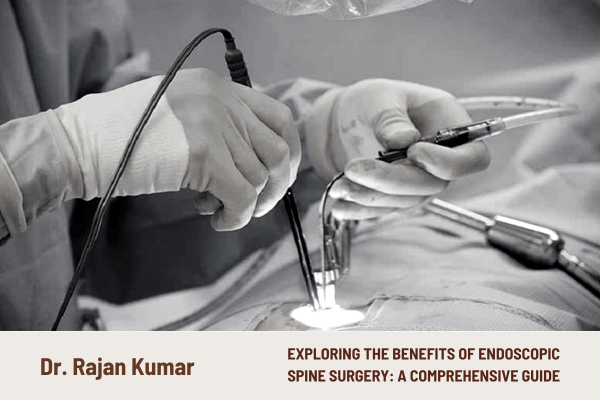Endoscopic spine surgery is revolutionizing the field of neurosurgery, providing patients with a minimally invasive alternative to traditional open procedures. As one of the Best Neurosurgeons in Kolkata with extensive experience in this cutting-edge technique, I am excited to shed light on the benefits of endoscopic spine surgery. In this comprehensive guide, we will explore the advantages, techniques, and potential outcomes associated with this innovative approach.
The Advantages of Endoscopic Spine Surgery
- Minimally Invasive: One of the most significant benefits of endoscopic spine surgery is its minimally invasive nature. Compared to traditional open surgeries, endoscopic procedures involve smaller incisions, reduced muscle damage, and minimal disruption to surrounding tissues. This results in less postoperative pain, shorter hospital stays, and quicker recovery times.
- Precise Visualization: Endoscopic spine surgery utilizes state-of-the-art technology, including high-definition cameras and specialized instruments, to provide surgeons with enhanced visualization of the surgical site. This allows for precise identification and treatment of spinal pathologies while minimizing the risk of damage to healthy tissues.
- Reduced Blood Loss: The smaller incisions and meticulous techniques used in endoscopic spine surgery contribute to significantly reduced blood loss during the procedure. This can be particularly beneficial for patients with underlying medical conditions or those who are more susceptible to complications related to excessive bleeding.
- Faster Rehabilitation: With its minimally invasive approach, endoscopic spine surgery facilitates a faster rehabilitation process. Patients typically experience less postoperative pain, reduced muscle trauma, and quicker return of function, allowing them to resume their daily activities and regain their quality of life at a faster pace.
- Cosmetic Considerations: The smaller incisions and reduced tissue disruption associated with endoscopic spine surgery result in minimal scarring. This is particularly appealing to patients who value the aesthetic aspect of their surgical outcomes.
Potential Outcomes and Considerations
While endoscopic spine surgery offers numerous advantages, it is essential to note that not all spinal conditions can be treated using this technique. The suitability of the procedure depends on various factors, including the specific pathology, patient characteristics, and the surgeon’s expertise. A thorough evaluation and consultation with a qualified neurosurgeon are necessary to determine the best course of treatment for each individual case.
Conclusion
Endoscopic spine surgery represents a significant advancement in the field of neurosurgery, offering patients a minimally invasive alternative with numerous benefits. From reduced pain and shorter recovery times to precise visualization and minimal scarring, this innovative approach has the potential to revolutionize spinal procedures. If you are considering spine surgery, I encourage you to consult with a qualified neurosurgeon to explore whether endoscopic spine surgery is a suitable option for you.

